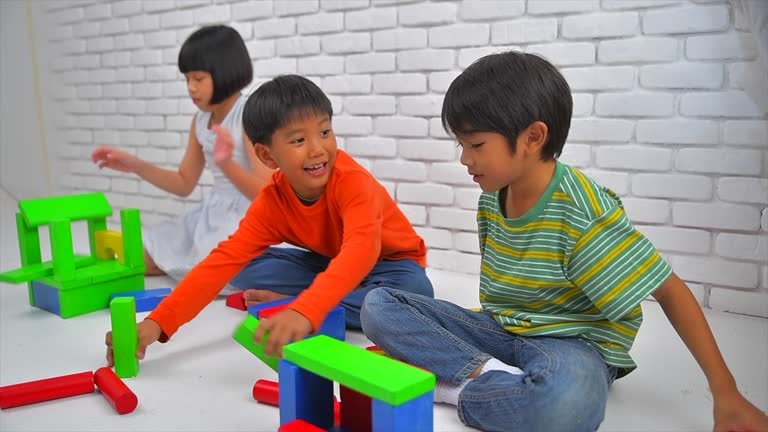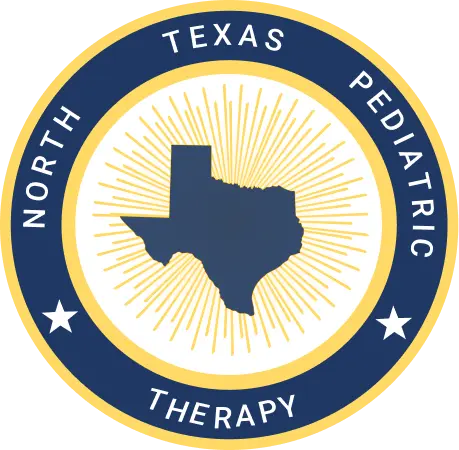Language and communication are basic skills that enable children to interact with other members, to express themselves, and to go forward in this world.
Children with autism spectrum disorder (ASD) often have problems developing these skills because they process language and social cues differently than other children.
But autism speech therapy is hope in the form of children being endowed with tools they would require to communicate purposefully and unfalteringly.
Empowering every special child, one step at a time, and dedicated to compassionate, evidence-based care, we are North Texas Pediatric Therapy.
This article is all about autism and how speech‑language therapy can help with language development and help kids reach their full potential.

Understanding Language Development Challenges in Autism
Children with autism have trouble with verbal and nonverbal communication. These challenges may include:
- Delayed Speech: One in 68 children is diagnosed with an autism spectrum disorder, and many begin speaking later — or not at all.
- Difficulty Understanding Language: Difficulty interpreting the meaning of words, instructions, or conversations.
- Limited Vocabulary: A lesser pool of words to describe needs, thoughts, and/or emotions.
- Echolalia: Mixing up single words or phrases and repeating them instead of generating their own sentences.
- Social Communication Issues: Ability to have back-and-forth conversations, interpretation of tone of voice, appropriate gestures, and appropriate eye contact.
These communication barriers can impact a child’s ability to make friends, earn good grades, or get around in social situations.
The Role of Speech Therapy in Autism
Speech therapy is a cornerstone of autism therapy in North Texas, focusing on building essential communication skills for children with ASD.
What is Speech-Language Therapy?
Speech-language therapy is designed to address both the mechanical aspects of speech (e.g., articulation) and the broader aspects of communication, including understanding language, using social cues, and building meaningful interactions.
For children with autism, speech therapy is tailored to meet their individual strengths and challenges, whether they’re nonverbal, minimally verbal, or working on more advanced communication skills.
How Speech Therapy Supports Language Development in Children with Autism
-
Enhancing Verbal Communication
For children who are developing speech, therapy focuses on:
- Teaching sound articulation to form clear words.
- Expanding vocabulary and sentence structure.
- Encouraging expressive language to convey thoughts, needs, and feelings.
-
Building Alternative Communication Skills
Not all children with autism rely on verbal communication. Speech therapy introduces augmentative and alternative communication (AAC) tools, such as:
- Picture Exchange Communication Systems (PECS): Using visual cards to represent words or concepts.
- Speech-generating devices: Tablets or apps that help children communicate by selecting words or phrases.
- Sign language: A manual form of communication that can bridge the gap for nonverbal children.
These tools give children the ability to express themselves in ways that work for them.
-
Improving Social Communication
Social interactions are a common challenge for children with autism. Speech therapy helps by teaching:
- Turn-taking in conversations.
- Recognizing and responding to social cues like facial expressions and body language.
- Asking and answering questions appropriately.
- Initiating and maintaining conversations with peers and adults.
By developing these skills, children can build stronger relationships and participate more fully in social settings.
-
Strengthening Receptive Language Skills
Receptive language refers to the ability to understand and process what others are saying. Speech therapy helps children:
- Follow multi-step directions.
- Understand the meaning of words and sentences.
- Improve listening skills in different environments, such as the classroom or playground.
Evidence-Based Techniques Used in Speech Therapy for Autism
Speech therapists employ a variety of research-backed strategies to support language development for autism, including:
-
Applied Behavior Analysis (ABA) Techniques
While primarily associated with behavioral therapy, ABA principles can be integrated into speech therapy to encourage language development. Positive reinforcement is often used to reward successful communication attempts.
-
Play-Based Therapy
Children learn best when they’re engaged and having fun. Play-based therapy uses games, toys, and imaginative scenarios to teach language and social skills naturally.

-
Visual Supports
Visual aids, such as picture schedules, flashcards, and storyboards, help children understand concepts and routines, making communication more accessible.
-
Prompting and Modeling
Therapists model correct speech or social interactions and use prompts to guide the child toward replicating those behaviors. Over time, the level of prompting decreases as the child gains independence.
-
Parent Training and Involvement
Parents play a crucial role in reinforcing communication strategies at home. Therapists provide parents with tools and techniques to create a consistent learning environment for their children.
The Benefits of Early Speech Therapy for Autism: Why Early Intervention Matters
Research shows that early intervention can significantly improve outcomes for children with autism. Starting communication therapy for autism at a young age leverages the brain’s plasticity, making it easier for children to acquire new skills.
Benefits of early intervention include:
- Improved ability to express needs and emotions.
- Better social interactions and peer relationships.
- Reduced frustration and behavioral challenges related to communication difficulties.
- Increased readiness for academic environments.
How North Texas Pediatric Therapy Supports Children with Autism
At North Texas Pediatric Therapy, we are passionate about helping children with autism unlock their full potential. Here’s why families trust us for their autism therapy in North Texas:
-
Individualized Care Plans
Every child is unique, and so are their therapy needs. We create customized plans that focus on your child’s specific strengths and areas for growth.
-
Experienced Therapists
Our licensed speech-language pathologists have extensive experience working with children on the autism spectrum, ensuring compassionate, skilled care.
-
Multidisciplinary Approach
We collaborate with other specialists, such as behavioral and occupational therapists, to provide comprehensive support for your child’s development.
Also read Top-Rated Speech Therapy for Children in Allen, TX – Start Today.
-
Family-Centered Care
We partner with parents to ensure therapy strategies are consistent at home and school, maximizing progress and outcomes.

Empowering Your Child Through Speech Therapy
For children with autism, learning to communicate effectively can open doors to a world of possibilities. Whether your child is just beginning to explore language or working to refine their social skills, speech therapy for autism provides the tools and support they need to succeed.
At North Texas Pediatric Therapy, we aim to empower every special child, one step at a time. By offering compassionate, evidence-based care, we help children with autism thrive in their unique way.
Ready to Take the Next Step?
Contact us today to learn more about how our speech-language therapy can support your child’s growth. Together, we’ll help your child build the skills they need to connect, learn, and succeed.


